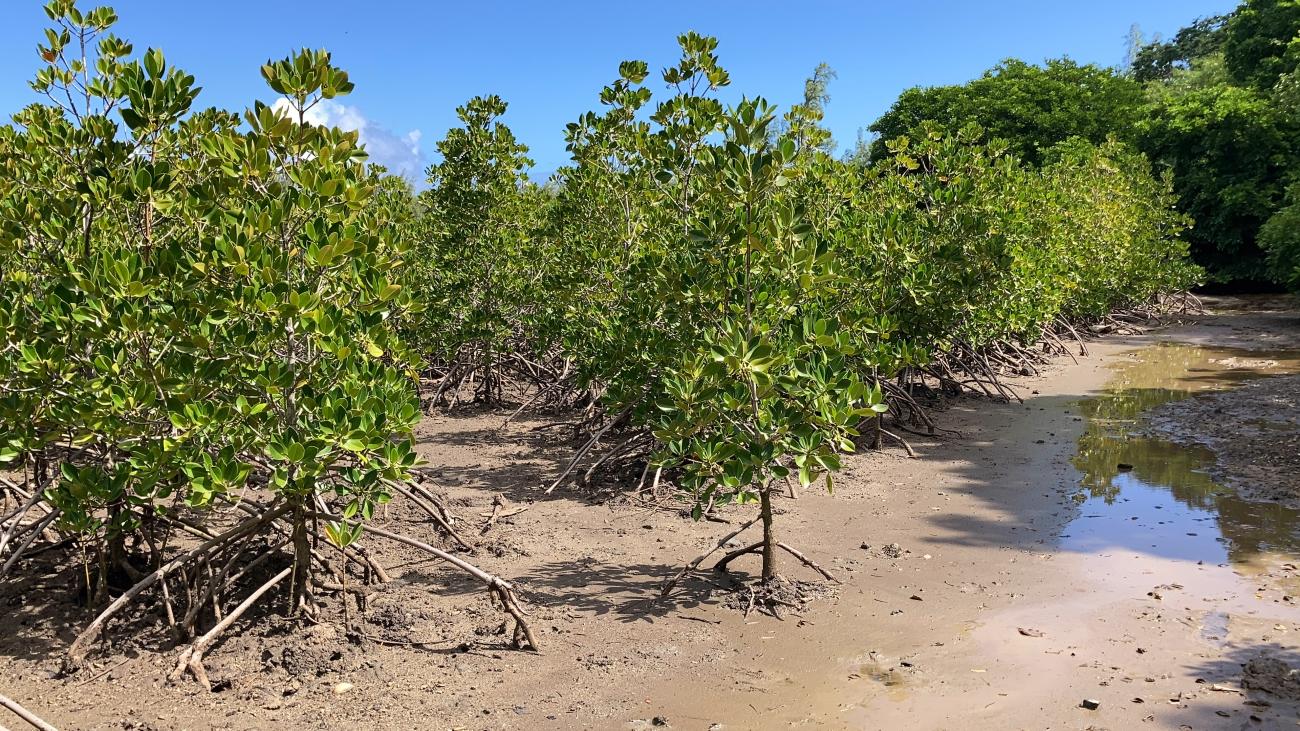The magnificence of wetlands lies not in their scenic beauty, but as valuable life-sustaining ecosystems. To raise global awareness and increase understanding of the essential importance of wetlands the United Nations marks World Wetlands Day on the 2nd February. This day also commemorates the anniversary of the Convention on Wetlands. An intergovernmental treaty adopted in 1971 with the mission to contribute to sustainable development through “the conservation and wise use of all wetlands through local and national actions and international cooperation” which now has a global membership of 172 countries. Mauritius ratified the Wetlands Convention on 30 May 2001.
Wetlands play a critical role for humanity and the planet as biodiversity hotspots. Forty percent of all plant and animal species, many of which are endangered, live or breed in wetlands. They are sources of fresh water, protecting against soil erosion and flooding, and the planet’s greatest natural carbon stores. Wetlands are also crucial to livelihoods, with over a billion people worldwide making a living from fishing, aquaculture, and tourism.
Covering an area of 401 hectares (imagine the scale - a football pitch is just under one hectare), Mauritius has three designated wetlands conservation Ramsar Sites:
- Rivulet Terre Rouge Estuary Bird Sanctuary (the first Ramsar Site in Mauritius) is of international significance due to 14 regularly visiting migratory birds, and for three species of endemic plants.
- Pointe d'Esny provides a rare example of a subtropical mangrove forest providing a habitat for endangered plants and native butterflies.
- Blue Bay Marine Park is protected for its unique underwater seascape and diversity of coral, marine fauna, and flora.
The ecologically rich coastline of Mauritius with near-shore wetlands and mangroves, lagoon coral, fringing coral reefs, and all their associated marine life has come under pressure in recent years. This has threatened the dynamic lagoon system, which provides livelihoods for fisher communities and tourism alike. Sadly, this is part of a global trend. More than 35% of natural wetlands have been lost in the last 50 years. Human activities are driving degradation. Wetlands are being drained and filled in for crops, grazing, and construction. Water pollution and overfishing are harming wetland ecosystems, along with invasive species. These activities are exacerbated by climate change fueling the rise in sea levels and storms changing coastal wetlands.
In recognition of the need to stop and reverse the trend this year’s World Wetland’s Day theme “Your choices, your voice and your actions can trigger a restoration trend” is a call to action to all key stakeholders, including members of the public. Dr. Musonda Mumba, Secretary General of the Convention on Wetlands reminds us:
"With only seven years left until 2030 for us to meet the Sustainable Development Goals, time is of the essence for sure."
The UN family in Mauritius is working with development partners to advocate for policy change to protect and sustainably manage coastal and marine ecosystems and wetlands.
For World Wetlands Day 2023, we’re calling on people to take action in three specific ways:
- Conscious choices to minimize our own impact on wetlands.
- Persuasive voices to educate and activate others to get involved in wetland restoration.
- Bold actions and taking part in wetland restoration efforts locally.
You can be part of the solution to save and restore these precious ecosystems.
Our actions have an impact. One small action can trigger a ripple effect.
#GenerationRestoration #ForWetlands #WorldWetlandsDay



